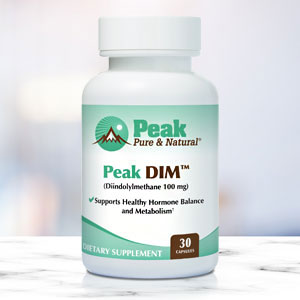Get Easy Health Digest™ in your inbox and don’t miss a thing when you subscribe today. Plus, get the free bonus report, Mother Nature’s Tips, Tricks and Remedies for Cholesterol, Blood Pressure & Blood Sugar as my way of saying welcome to the community!
Why are more men dying from ‘broken heart syndrome’

The idea of dying from a broken heart has been around for as long as people have been writing tragic songs, books, plays and movies. But this notion actually has roots based in fact.
Takotsubo cardiomyopathy (TC), or “broken heart syndrome,” also known as stress cardiomyopathy, is a condition in which the heart is weakened by a surge of hormones resulting from physical or emotional stress.
It’s often brought on by things like surgery, infection, or the deep grief of losing a loved one.
A 2012 study found that a person is 21 times more likely to have a “heart attack” the day immediately following the death of a loved one.
Women appear to fall victim to TC at rates higher than men. But a disturbing finding indicates men may be at graver risk from the condition…
Higher TC death rate in men
Researchers at the University of Arizona examined data on nearly 200,000 patients in the US between 2016 and 2020. They discovered that while the incidence of TC rose slightly for both males and females, females were more likely to develop the condition.
That wasn’t the most startling finding, though. While the condition was more common in women, men died from TC at roughly twice the rate of women, with 11.2 percent of males dying compared with only 5.5 percent of females. The overall TC death rate was 6.5 percent.
“We were surprised to find that the death rate from takotsubo cardiomyopathy was relatively high without significant changes over the five-year study, and the rate of in-hospital complications also was elevated,” says interventional cardiologist M. Reza Movahed from the University of Arizona.
One theory as to why there’s such a difference in death rates is that physical stress TC is more common in men than in women. Physical stress-caused TC is more likely to result in death than TC resulting from emotional stress.
Physical stress can occur when a surge of hormones, like adrenaline, temporarily disrupts the heart’s normal function. Physical stressors can include events such as illness or surgery.
Movahed noted that age-related findings could prompt earlier diagnosis of TC and remove the assumption that TC only occurs in the elderly.
While it’s true that people over the age of 61 had the highest rates of TC, there was a 2.6 to 3.25 times higher incidence of the condition among adults ages 46-60 compared to younger adults (31–45 years). Researchers attributed that increase to accumulated stressors, under-treated cardiovascular risks and hormonal changes in middle age.
Better diagnosis, better treatment for broken heart syndrome
According to the study, some complications resulting from TC included congestive heart failure (35.9 percent of patients), atrial fibrillation (20.7 percent), cardiogenic shock (6.6 percent), stroke (5.3 percent) and cardiac arrest (3.4 percent).
Because the symptoms are so similar, TC is often confused with heart attack or chest pain. The researchers hope their study will raise awareness of TC, enabling it to be diagnosed and treated more effectively.
“Some complications, such as embolic stroke, may be preventable with an early initiation of anti-clotting medications in patients with a substantially weakened heart muscle or with an irregular heart rhythm called atrial fibrillation that increases the risk of stroke,” Movahed says.
Looking beyond this study, there are still many unanswered questions about how TC can be detected and how the risk of TC-related complications can be reduced.
Unlike a heart attack, stress cardiomyopathy doesn’t involve blocked coronary arteries. So, even if you’ve been given a clean bill of heart health but experience any of the following signs — seek medical care asap, and follow up with your doctor about your risks for TC:
- Sudden chest pain
- Shortness of breath
- Fast or irregular heartbeat
- Sweating or dizziness
Previous research found that beta-blockers may help in treating broken heart syndrome by blocking the effects of the hormone epinephrine, also known as adrenaline.
Editor’s note: There are perfectly safe and natural ways to decrease your risk of blood clots including the 25-cent vitamin, the nutrient that acts as a natural blood thinner and the powerful herb that helps clear plaque. To discover these and other secrets of long-lived hearts, click here for Hushed Up Natural Heart Cures and Common Misconceptions of Popular Heart Treatments!
Sources:
Men Are Dying From ‘Broken Heart Syndrome’ at Twice The Rate of Women — Science Alert
The risk of death or complications from broken heart syndrome was high from 2016 to 2020 — American Heart Association
High Mortality and Complications in Patients Admitted With Takotsubo Cardiomyopathy With More Than Double Mortality in Men Without Improvement in Outcome Over the Years — Journal of the American Heart Association














